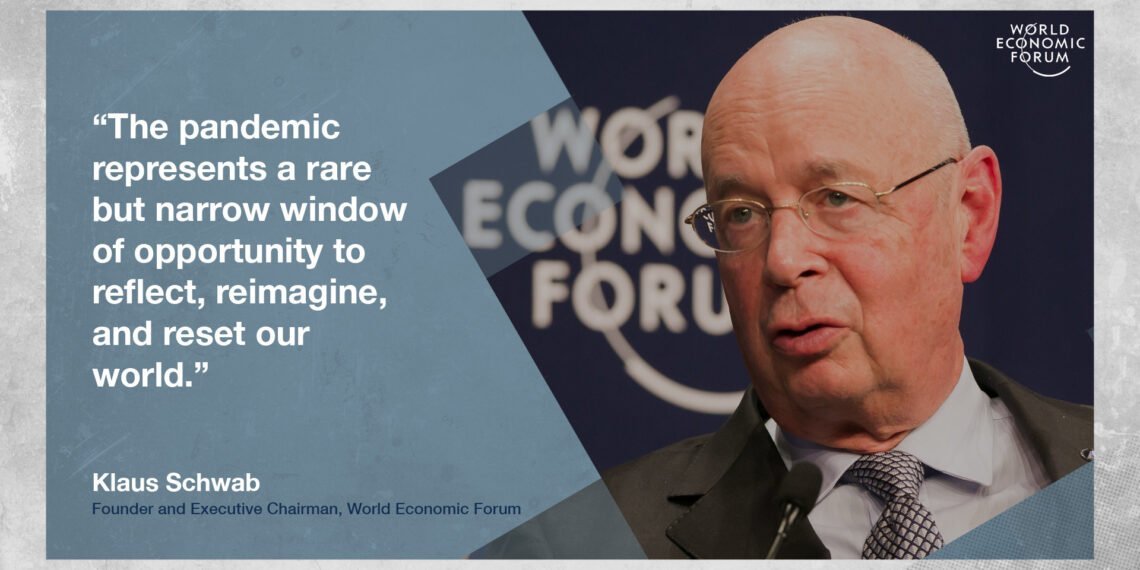Table of Contents
How the United Nations is quietly being turned into a public-private partnership
By Harris Gleckman
A new agreement with the World Economic Forum gives multinational corporations influence over matters of global governance.
But for Monsalve, “this only makes it worse. Now corporations can protect their interests and hide behind these platforms because it’s unclear who is in there.” Indeed, a corporate partner list is nowhere to be found on the official website. The FSS organisers were contacted for comment but had not responded by the time of publication.
The signatories to the letter fear that, with corporate involvement in the summit, food will continue to be treated “as a commodity and not as a human right”. If unchanged, industrial food systems will continue to have irreversible impacts on our health and the health of our planet.
1 Big tech governing big tech
Another landmark in the development of stakeholder capitalism can be found in the Big Tech sector. As a part of his 2020 Roadmap for Digital Cooperation the UN Secretary-General called for the formation of a new ‘strategic and empowered multi-stakeholder high-level body’. Again it’s not easy to find a list of stakeholders but after some digging a long list of ‘roundtable participants’ for the roadmap includes Facebook, Google, Microsoft and the WEF.
Although the functions laid out for this new body are quite vague, civil society organizations fear it will come down to Big Tech creating a global body to govern itself. This risks institutionalising these companies’ resistance against effective regulation both globally and nationally and increasing their power over governments and multilateral organizations. If the body comes to fruition, it could be a decisive victory in the ongoing war GAFAM (Google, Apple, Facebook, Amazon and Microsoft) is waging with governments over tax evasion, antitrust rules, and their ever-expanding power over society.
More than 170 civil society groups worldwide have signed another open letter to the secretary general of the UN – this time to prevent the digital governance body from forming. The secretary general was approached for comment but had not replied at the time of publication.as the Bill and Melinda Gates Foundation, and both are also connected to companies like Pfizer, GlaxoSmithKline, AstraZeneca and Johnson & Johnson through manufacturer partnerships (GAVI) or as ‘supporters’ (CEPI). Even though COVAX is funded predominantly by governments, it is these corporate-centred coalitions that are overseeing its roll-out.
The contrast between the multi-stakeholder approach and a ‘classic’ multilateral one came to the surface when South Africa and India proposed the so-called TRIPS waiver at the end of last year. They requested a temporary lifting of intellectual property rules on all COVID-19 technologies in order to boost the manufacturing and distribution of vaccines and other essential medical products in mainly developing countries. WHO director general Tedros Adhanom Ghebreyesus said in a speech that he backed the proposal. “But GAVI, the Bill and Melinda Gates Foundation – even Bill Gates himself – and Big Pharma opposed this proposal very strongly,” said Nandi. “It’s more important for them to protect their interests and market mechanisms than to protect universal health or protect people from COVID.” The WHO was approached for comment but has not replied.
Again, there is a stark choice between a human rights-led approach carried out by the UN and a profit-led approach carried out by multistakeholder bodies representing the interests of corporations. In the case of COVAX – which is failing to meet its modest aim of vaccinating 20% of the populations of low- and middle-income countries – the former has won out.
2 Stake out stakeholder capitalism
So even if the WEF (or Bill Gates) is not responsible for the COVID pandemic, even if the vaccines are not laced with microchips to control our thoughts, something fishy really is going on in the realm of global governance. If you value your right to public health, to privacy, to access healthy food or to democratic representation, be wary of the words ‘stakeholder capitalism’ when they pop up at the next Davos summit.
The WEF was approached for comment on the issues raised in this article, but had not replied at the time of publication.
Go Figure:








